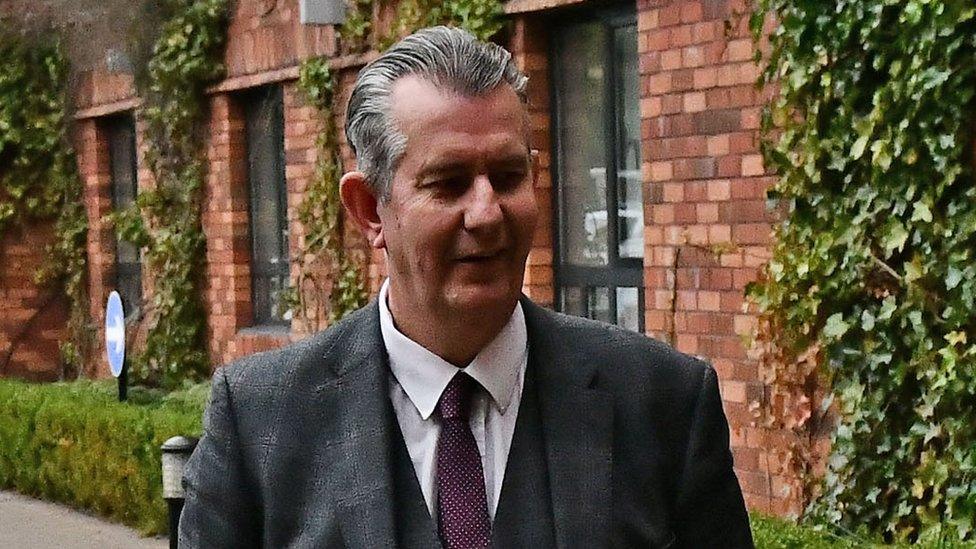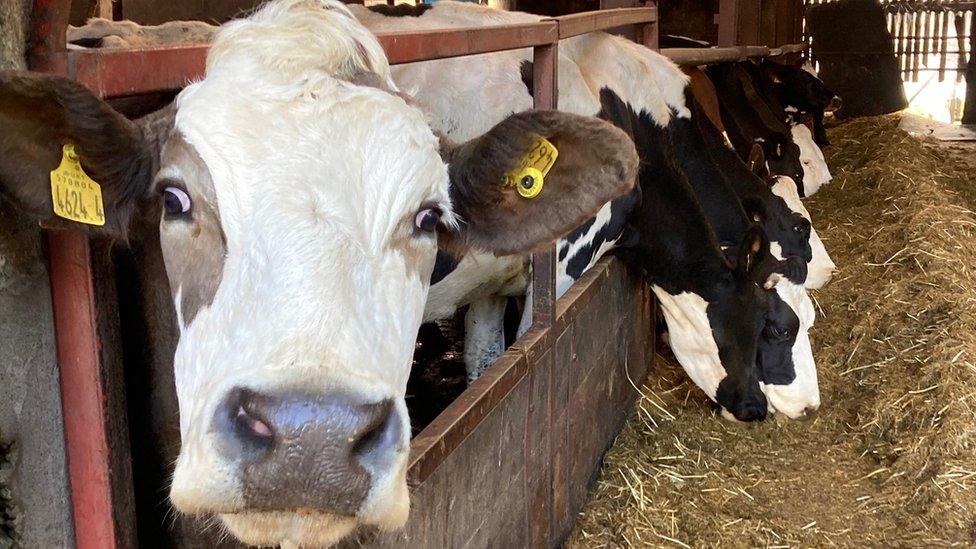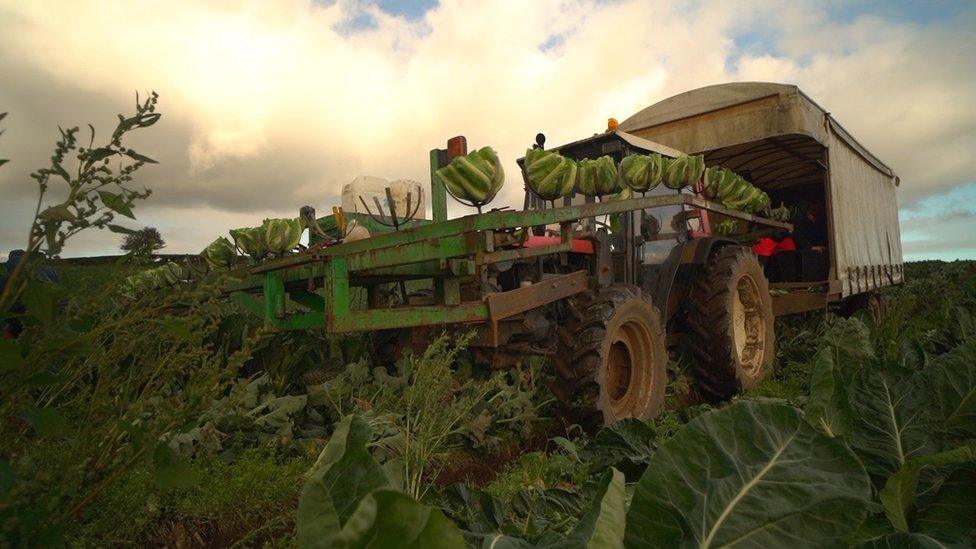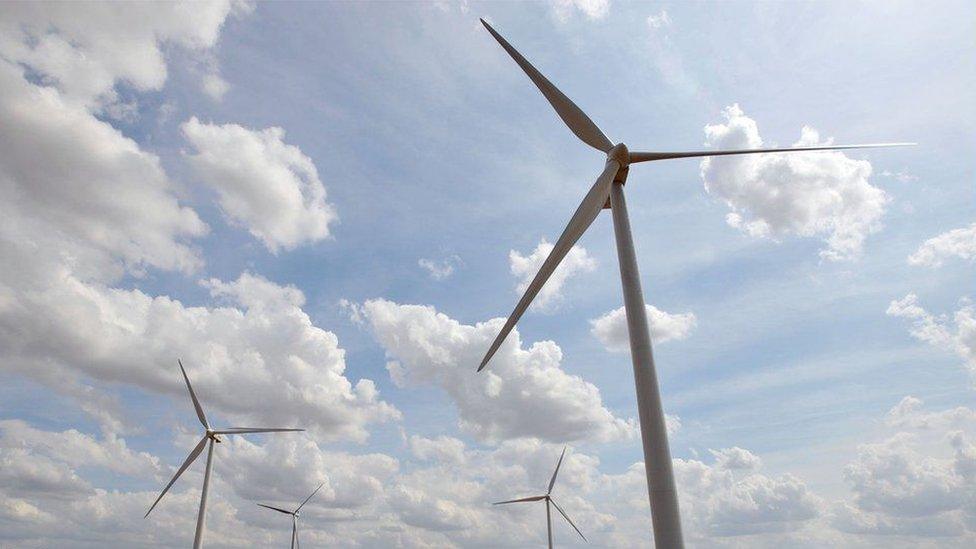Climate change: Edwin Poots' amendments to be debated
- Published

Edwin Poots said his amendments were aimed at ensuring the agricultural sector was not "unfairly burdened" by an agreed Net Zero target
Edwin Poots has proposed limiting reductions required in methane, and removing "emissions from agricultural sources" from NI's Net Zero target.
The agriculture minister's Climate Change No.2 Bill will be debated again at the assembly on Monday.
The minister said his amendments were aimed at ensuring the agricultural sector was not "unfairly burdened" by an agreed net zero target.
Earlier this month, the assembly agreed to reaching net zero by 2050.
This was instead of the 82% reduction in emissions by 2050 originally proposed in the bill.
In all, 70 amendments will be debated at the assembly during the further consideration stage of the bill.
It is one of two bills relating to climate change currently on the legislative track at Stormont.
A private member's bill from the leader of the Green Party, Clare Bailey, was originally ahead of the minister's bill, but has not yet moved to the consideration stage.
It is listed for Monday 7 March.

Agriculture is the biggest emitter of greenhouse gas emissions in Northern Ireland
It proposes reaching net zero by 2045, while the 82% reductions target originally in the minister's bill was in line with what the UK's Climate Change Committee said was possible for Northern Ireland.
Net zero is when the amount of greenhouse gases (GHG) - like carbon and methane - that a country is putting into the atmosphere is offset by the steps that country is taking to remove those emissions from the air.

Analysis: Amendments will raise eyebrows
Most agricultural emissions are methane - it's short-lived, but more than 80 times more warming during its life than carbon dioxide.
That's why any reduction in it could have such an immediate and sizeable impact.
But Edwin Poots' amendment 17 proposal begins, "emissions of a greenhouse gas from agricultural sources do not count as Northern Ireland emissions of the gas".
That would effectively take agriculture, responsible for the greatest share of Northern Ireland's emissions, out of the equation all together.
A cynic might say this is a vote-grabbing move by a minister with one eye on the upcoming election, but it is also a move that could undermine what he and the industry have been saying all along - that they recognise agriculture has a role to play in addressing climate change.
It isn't the only amendment to have raised an eyebrow - there's one from Sinn Féin, about giving "due regard to the special economic and social role of agriculture, including with regard to the distinct characteristics of biogenic methane." That raises the prospect of a door left open for changes in future policy-making.
But the assembly has already agreed to a net zero by 2050 target. And in line with the UK Climate Change Committee's approach, that's a commitment covering all greenhouse gases, with no specific targets for individual gases.
The International Panel on Climate Change, which sounded a "code red for humanity" in its report last summer, is due to publish the latest assessment from its working group the same day Climate Change No.2 goes through further consideration.
Its findings will form an interesting backdrop for the outcome of Monday's debate.

Agriculture is the biggest emitter of greenhouse gases in Northern Ireland.
Those in the industry say a net zero target, rather than a percentage one, would lead to reductions in productivity, rises in prices, the loss of many jobs and an increase in GHG because of the resulting need to import food.
But supporters of a net zero target say the sector should be more ambitious in its aims when it comes to wiping out GHG emissions and protecting the environment.
"I know the Northern Ireland agriculture sector fully recognises the climate challenges we face and they have already put a range of steps in place to helps us tackle the issue together," Mr Poots said.
"There is widespread acceptance of the need to minimise the impacts of climate change in both the agriculture and environment sectors - but this must not be to the detriment of one particular sector which is a vital part of our economy."
- Published31 January 2022

- Published2 January 2022

